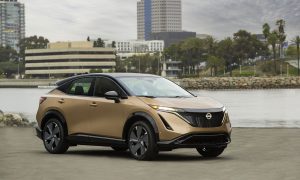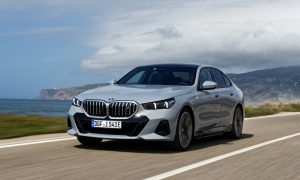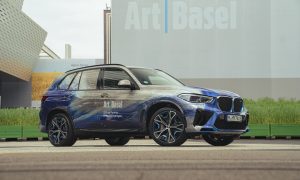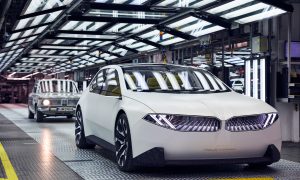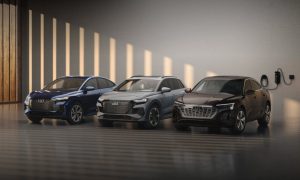News
German auto industry wary of EV innovations inspired by Tesla
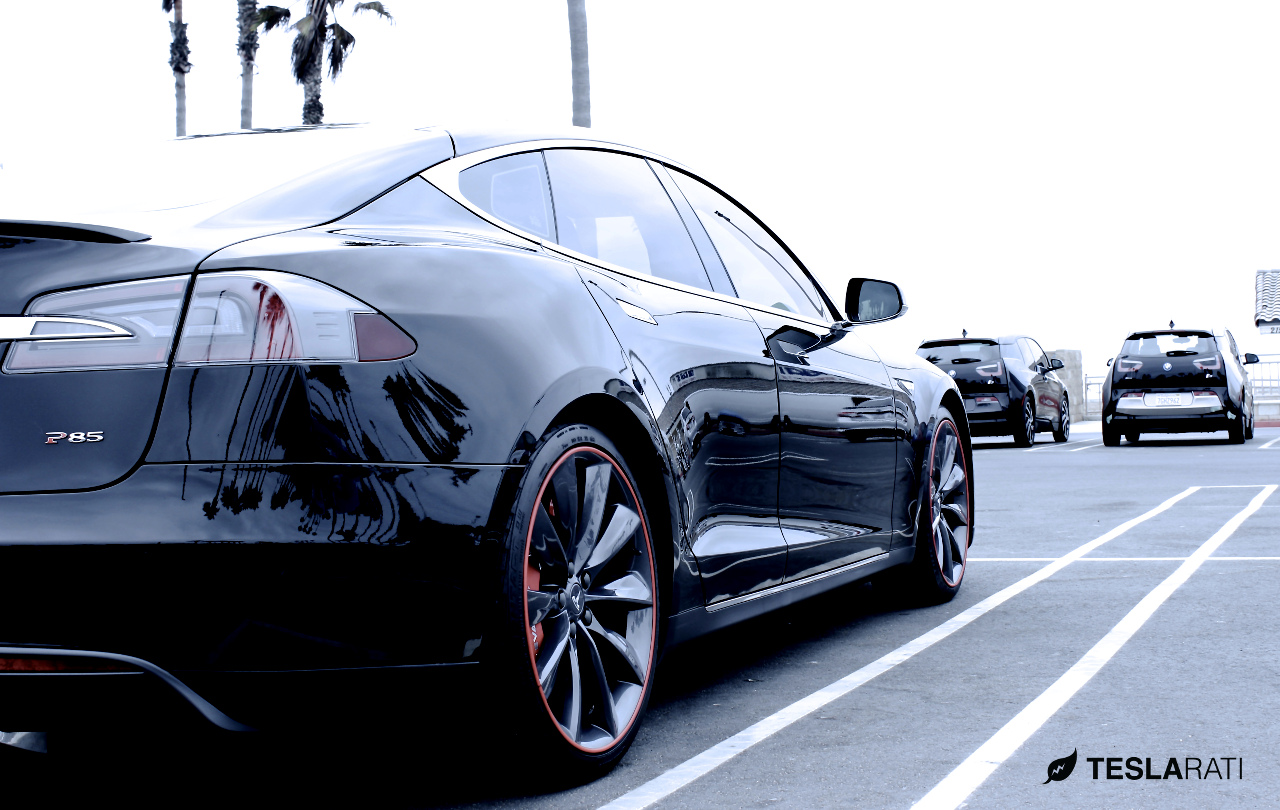
More than 300 high-ranking representatives of the German automotive industry gathered in Berlin recently to hear the President of the German Association of the Automotive Industry (VDA) express firm views that “the calls to ban combustion engines are becoming louder.”
VDA President Matthias Wissmann explained that the German automotive industry has already invested 14 billion euros in electric mobility, and, with 30 electric models in series production, it is currently one of the world’s leading providers of electric mobility. Electric mobility is an important component for achieving climate targets, reducing emissions of pollutants, and lowering CO2. The VDA expects that the country’s automotive manufacturers will more than triple the number of electric vehicle models to nearly 100 by 2020 as battery costs decline and electric ranges increase toward 500 km. That will edge closer to the distances gasoline and diesel cars can travel on a single tank.
Wissman warned that, if energy policy follows developments, both passenger cars and commercial vehicles would need to adhere to increased regulations and automakers would have to engage in some serious self-examination. “This industry is not start-up company that can constantly procure fresh funding despite persistent losses,” he said in a remark likely directed at Tesla. “Today we can imagine that in 2025, 15 to 25 percent of new passenger car registrations worldwide could be electric vehicles. The trend is accelerating – just a short while ago experts thought a share of only 3 percent was more likely. Every fourth or fifth new car sold will then have an electric drive.” Tesla, it must be noted, paid back its Department of Energy loan nine years early.
The German car industry is investing 40 billion euros in alternative drivetrains. This amount includes research and development expenditures as well as assets such as equipment and tools for production. Late last month BMW, Daimler, and the Volkswagen Group were among European automakers that signed a declaration of intent to start next year with the construction of a quick charging network for electric cars based on the CCS standard. Of course, Tesla has also joined the CharIN group, which created and promotes the CCS charging standard commonly found on the SAE-Combo plug.
The German automotive industry has recently intensified research and development activities in the fields of digitization and connected driving. Instead of having “to worry about the new competition,” Wissman said the German automotive industry aims to be right at the forefront of developments. These were more lightly-veiled references to Tesla Motors, Inc., with its Model S now performing as the best selling luxury car in Western Europe, accelerating past traditional high-status and internal combustion engine powered favorites like the Mercedes S class, BMW 7 Series, Audi A8, and Porsche Panamera. Wissman also affirmed that European automakers could not switch immediately to electric vehicles and eliminate combustion engines from their catalogs, as they employ hundreds of thousands of workers around the world – many of which build diesel and gasoline engines.
To accelerate the evolution toward innovative automotive methods, Wissman described how the German automotive industry is now working intensively on new mobility concepts that generate totally new business models. “This trend arises from a rapidly changing expectation on the part of customers, who no longer demand just a product, but instead a mobility service,” Wissmann said. “In addition, completely new players are appearing on the market, such as large IT corporations. We take this challenge seriously, and are also tackling it.”
The VDA recognizes that increased efficiency, recycling, and a reduction in emissions benefit both companies and consumers as is preserving natural resources is an integral part of national and European regulation. They note on their website that, according to figures published in the national Inventory Report of the German Environmental Agency, CO₂ emissions produced by road traffic in Germany from 1999 to 2012 dropped by about 30 million metric tons. “In the last ten years the average fuel consumption by newly registered passenger cars in the EU has been brought down by over one quarter, and CO2 emissions have fallen in parallel,” Wissman noted. “The potential has not yet been exhausted. We expect that in the next few years we can increase the efficiency of gasoline and diesel vehicles by at least another 10 to 15 percent.”
Since 2006, German road traffic CO₂ emissions have been below 1990 levels for the seventh successive year and are around 5 million metric tons less than the 1990 figure. No other Western European country has so far succeeded on a sustained basis in reducing road traffic CO₂ emissions below the level of 1990, according to the VDA. German automakers’ shifts to more fuel-efficient and carbon-reducing vehicles, however, can only help reduce these levels further.
Elon Musk
Elon Musk and Donald Trump to speak with each other Friday: report
White House aides have scheduled a call between the CEO and U.S. President on Friday.

Elon Musk and Donald Trump’s feud seems to be thawing, at least to some degree.
As per a recent Politico report, White House aides have scheduled a call between the CEO and U.S. President on Friday.
Musk vs. Trump
Musk turned into a staunch critic of Trump amidst the administration’s efforts to pass the “Big Beautiful Bill,” which the CEO claimed would add trillions to the country’s deficit. Trump, for his part, claimed that Musk turned on him due to the adverse effects of the proposed bill on his companies.
The spat between the two powerful men became so notable that Musk called for the impeachment of Trump on X. He also claimed that Trump was in the Epstein list. The U.S. President, for his part, threatened to cancel billions of dollars worth of government contracts with Musk’s companies such as SpaceX.
Potential Truce
As per Politico, however, White House aides have stepped in to temper the tensions and broker peace between the two powerful men. When asked by the outlet about his ongoing feud with the CEO, Trump reportedly stated that “it’s okay” and that “it’s going very well, never done better.” The U.S. President also highlighted his favorability ratings, stating that his “numbers are through the roof.”
While the CEO was very aggressive against Trump in his X posts, he did back down somewhat after some time. When hedge fund manager Bill Ackman argued that Trump and Musk should make peace for the benefit of the United States, the CEO responded with, “You’re not wrong.” Musk also walked back on his decision to decommission SpaceX’s Dragon spacecraft, which is essential to NASA’s operations.
Investor's Corner
Goldman Sachs reduces Tesla price target to $285
Despite Goldman Sach’s NASDAQ: TSLA price cut to $285, Tesla boasts $95.7B in revenue & nearly $1T market cap.
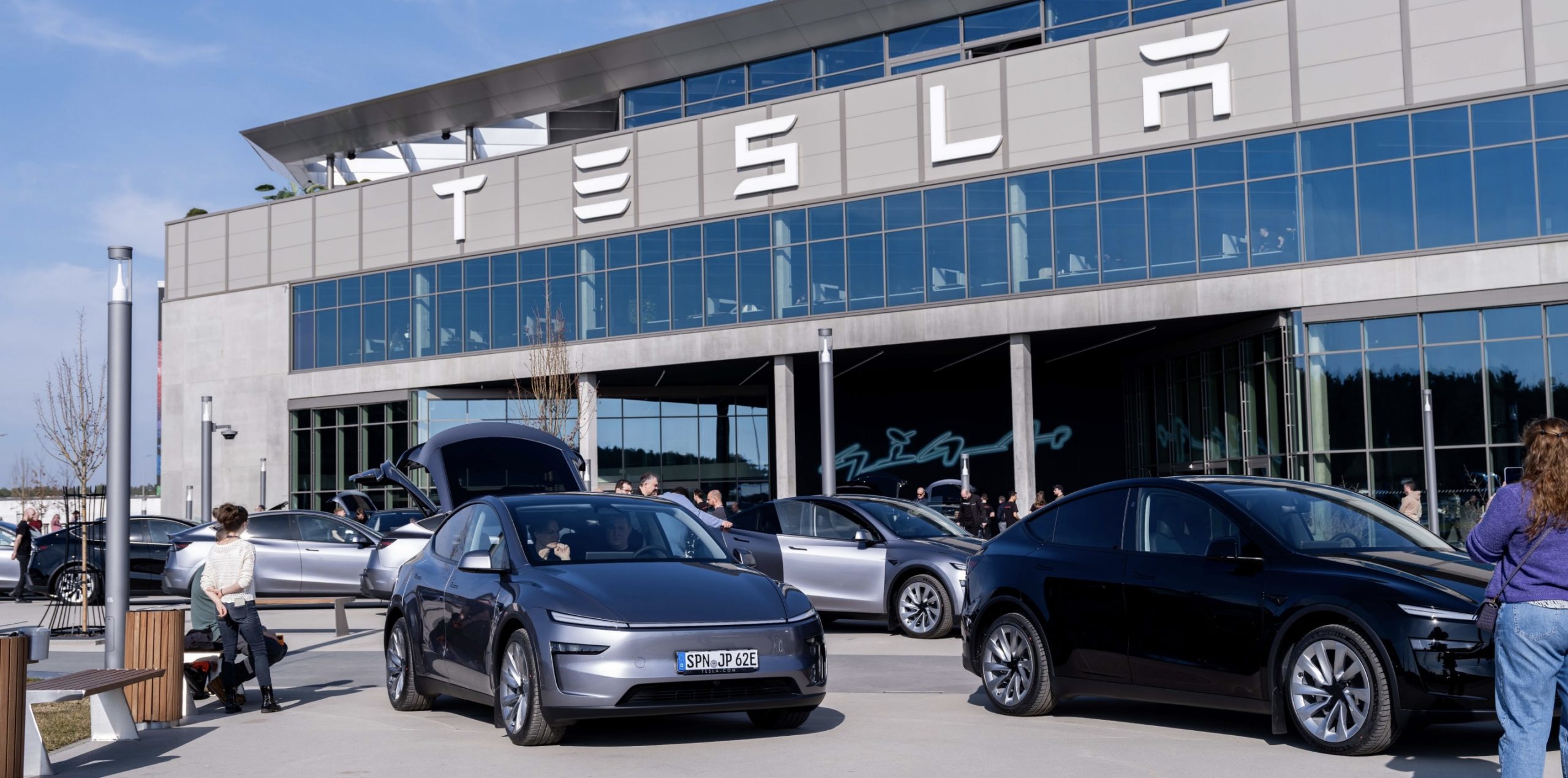
Goldman Sachs analysts cut Tesla’s price target to $285 from $295, maintaining a Neutral rating.
The adjustment reflects weaker sales performance across key markets, with Tesla shares trading at $284.70, down nearly 18% in the past week. The analysts pointed to declining sales data in the United States, Europe, and China as the primary driver for the revised outlook. In the U.S., Tesla’s quarter-to-date deliveries through May fell mid-teens year-over-year, according to Wards and Motor Intelligence.
In Europe, April registrations plummeted 50% year-over-year, with May showing a mid-20% decline, per industry data. Meanwhile, the China Passenger Car Association (CPCA) reported a 20% year-over-year drop in May, despite a 5.5% sequential increase from April. Consumer surveys from HundredX and Morning Consult also shaped Goldman Sachs’ lowered delivery and EPS forecasts.
Goldman Sachs now projects Tesla’s second-quarter deliveries to range between 335,000 and 395,000 vehicles, with a base case of 365,000, down from a prior estimate of 410,000 and below the Visible Alpha Consensus of 417,000. Despite these headwinds, Tesla’s financials remain strong, with $95.7 billion in trailing twelve-month revenue and a $917 billion market capitalization.
Regionally, Tesla’s challenges are stark. In Germany, the German road traffic agency KBA reported Tesla’s May sales dropped 36.2% year-over-year, despite a 44.9% surge in overall electric vehicle registrations. Tesla’s sales fell 29% last month in Spain, according to the ANFAC industry group. These declines highlight shifting consumer preferences amid growing competition.
On a positive note, Tesla is making strategic moves. The Model 3 and Model Y are part of a Chinese government campaign to boost rural sales, potentially mitigating losses. Piper Sandler analysts reiterated an Overweight rating, emphasizing Tesla’s supply chain strategy.
Alexander Potter stated, “Thanks to vertical integration, Tesla is the only car company that is trying to source batteries, at scale, without relying on China.”
As Tesla navigates these delivery challenges, its focus on innovation and supply chain resilience could help it maintain its edge in the electric vehicle market despite short-term hurdles.
News
Tesla adds useful Model 3/Y feature home chargers will love
Tesla has made it easier for Model 3 and Y owners to unlock the charging cable with certain adapters, chargers, and home chargers.
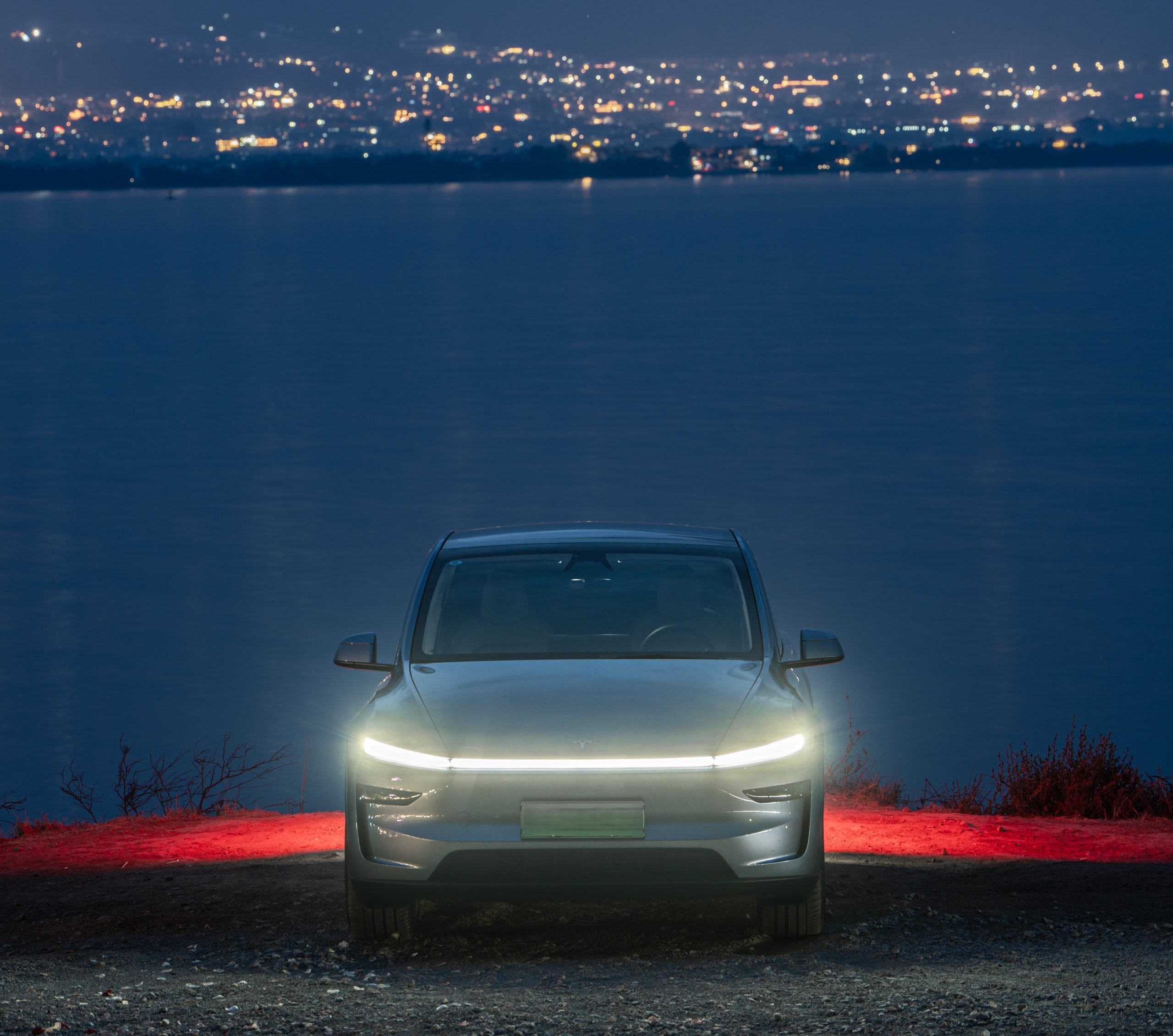
Tesla has recently added a small, albeit useful feature for owners who charge their electric vehicles (EVs) at home, and specifically for those who use third-party chargers.
Although Tesla’s first-party home chargers include a physical latch and unlatch button, many third-party chargers do not. As such, in Tesla’s software update 2025.20 that began rolling out this week, the automaker added a subtle shortcut for the Model 3 and Model Y that allows users to stop charging sessions on third-party charging handles and adapters without the unlatch button (via Not a Tesla App).
To unlock the pin that locks the charging cable in place, Tesla Model 3 and Model Y owners will now be able to pull and hold the rear left door handle near the charging port for three seconds, at which it will unlatch. Owners would previously have had to crawl into the trunk to do this from inside the vehicle, and the addition will simply add another option to open the door.
The feature requires owners to have the vehicle be either unlocked or have the key nearby, and is especially of benefit to owners who regularly use home or other chargers with NACS adapters such as the J1772, which often don’t necessarily unlatch even when pressing the cable’s button or don’t include a button at all.
READ MORE ON TESLA CHARGING FEATURES: Tesla exec shares unique Supercharger team rule that accelerates EV adoption
You can see a short video of the feature at work below, as posted on Thursday by X user Max Bracco.
Unlatching Charging Cable in 2025.20 pic.twitter.com/MBxTodOXOz
— Max Bracco (@max_bracco) June 5, 2025
It’s not clear as of yet whether or not the feature will be added to Tesla’s other vehicles, though it wouldn’t be surprising to see down the road. Tesla writes the following on the Model 3 and Model Y feature in its 2025.20 release notes:
Charging can now be stopped and the charge cable released by pulling and holding the rear left door handle for 3 seconds, provided the vehicle is unlocked or a recognized key is nearby. This is especially useful when the charge cable doesn’t have an unlatch button. You can still release the cable using the vehicle touchscreen or the Tesla app.
Tesla makes it easier to find towing-compatible Superchargers
-
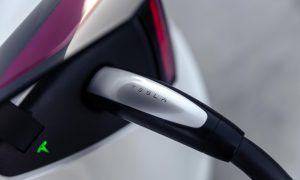
 News6 days ago
News6 days agoTesla to lose 64 Superchargers on New Jersey Turnpike in controversial decision
-
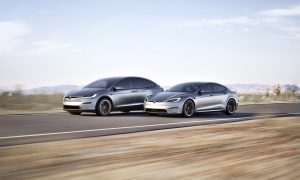
 News2 weeks ago
News2 weeks agoTesla’s new Model S and X spotted, but they leave a lot to be desired
-
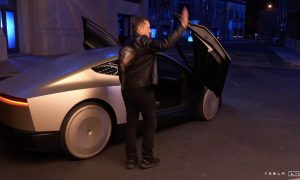
 Elon Musk2 weeks ago
Elon Musk2 weeks agoTesla set for ‘golden age of autonomous’ as Robotaxi nears, ‘dark chapter’ ends: Wedbush
-
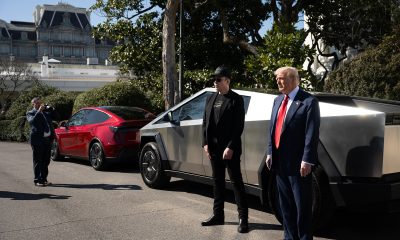
 Elon Musk2 weeks ago
Elon Musk2 weeks agoHow Tesla could benefit from the ‘Big Beautiful Bill’ that axes EV subsidies
-
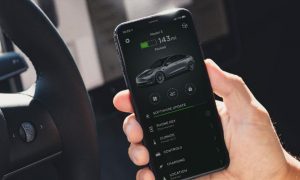
 News1 week ago
News1 week agoTesla gets major upgrade that Apple users will absolutely love
-
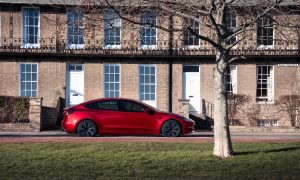
 News2 weeks ago
News2 weeks ago‘Tesla tax’ could be no more in United Kingdom
-

 Elon Musk2 weeks ago
Elon Musk2 weeks agoSpaceX Starship gets FAA nod for ninth test flight
-

 Elon Musk1 week ago
Elon Musk1 week agoTesla investors demand 40-hour workweek from Elon Musk


